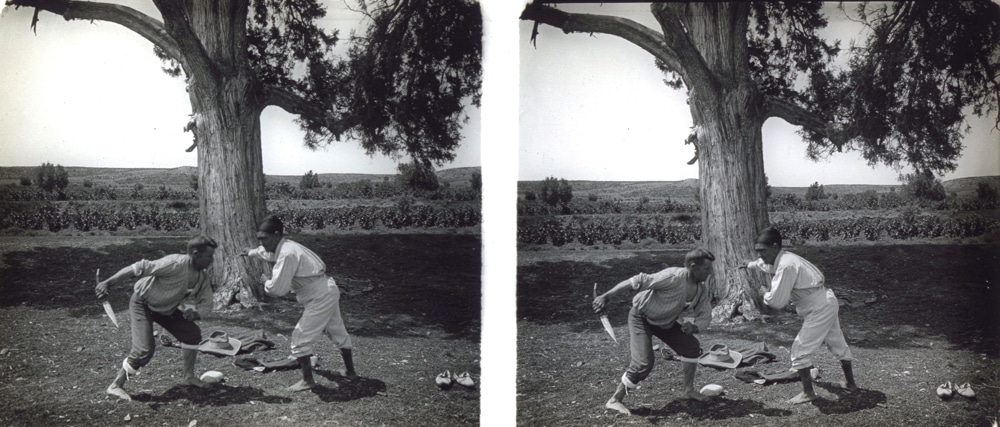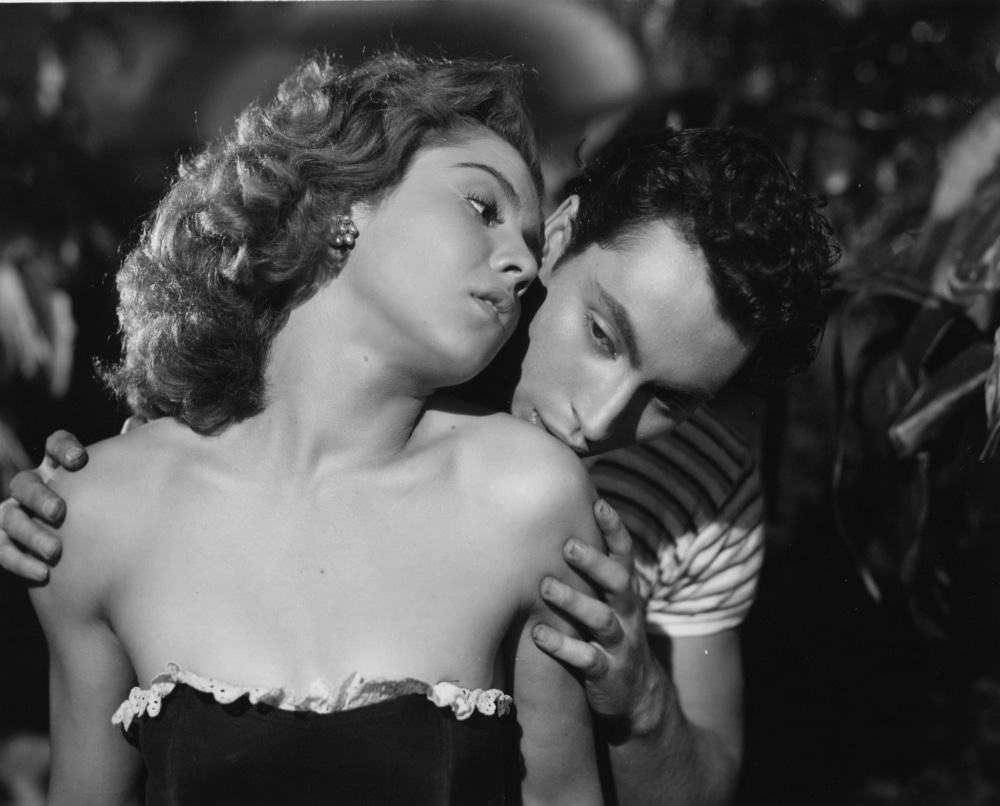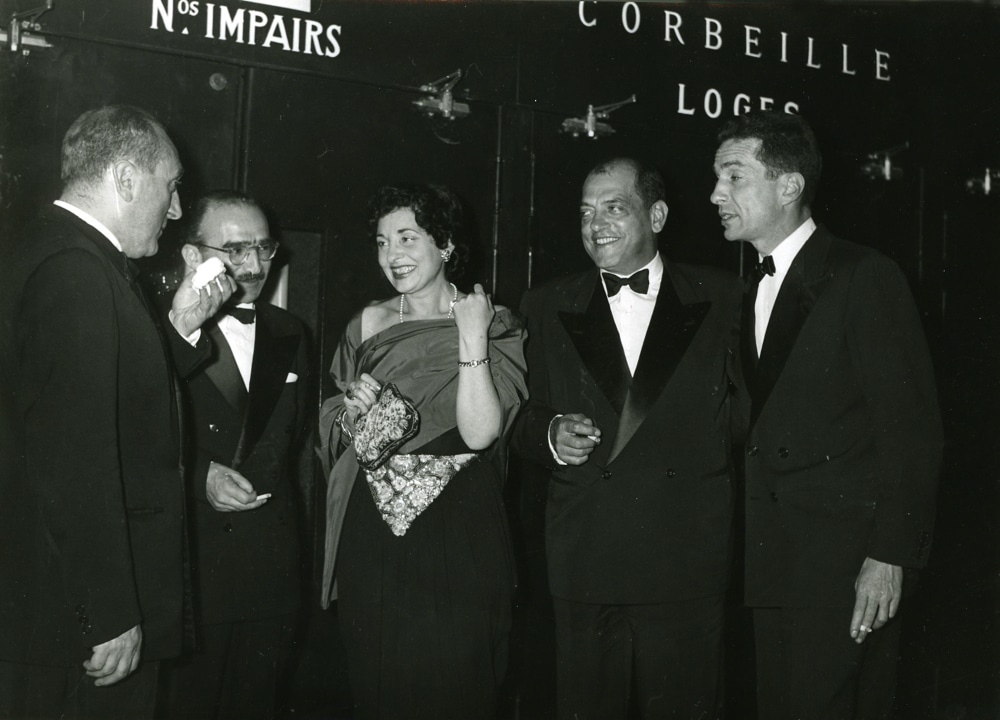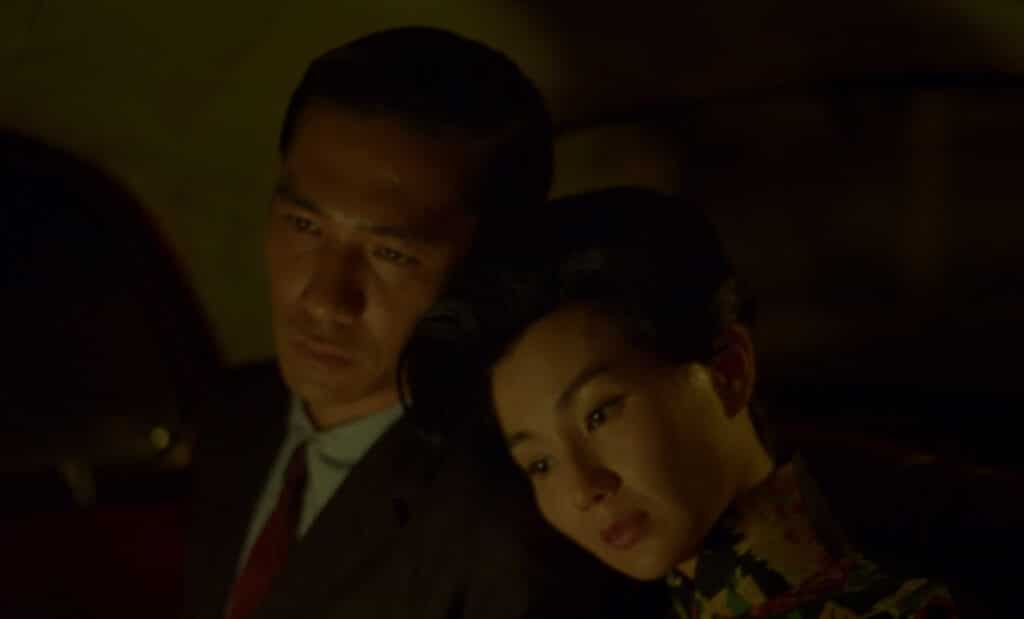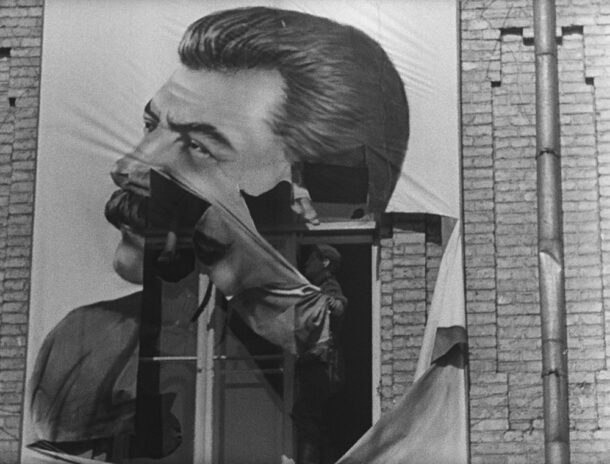As every year, the Festival de Cannes presents a selection of the best restored prints and invites us to explore again the history of Cinema.
The curtain rises with Mark Cousins’ pre-opening documentary; the rediscovery of director-actor Kinuyo Tanaka and Spanish director actress, screenwriter and producer Ana Mariscal; a tribute to director and actor Bill Duke; a close-up on the first African-American director Oscar Micheaux; the 1959 Palme d’Or; the 70th anniversary of Les Cahiers du cinéma; the modesty of Jacques Doillon; two wonders from Michael Powell and Emeric Pressburger; Martin Scorsese’s Film Foundation and the World Cinema Project; Tilda Swinton’s first role; cinema from the Ivory Coast, former Yugoslavia, Italy and former Czechoslovakia; Alain Resnais’s film at Cannes in 1966; Irène Jacob by Krzysztof Kieślowski and Jeanne Moreau by Philippe de Broca; some French thriller; “soviet” films welcomed in competition at Cannes; Orson Welles’s magic, the style of Max Ophüls; four outstanding documentaries on the great producer Jeremy Thomas, Satoshi Kon, Luis Buñuel and Yves Montand; a docudrama full of cinephile fury; and twenty years later, the unsolved mystery of Mulholland Drive…
Here is Cannes Classics 2021
A Tribute to Bill Duke
The director, actor (for John McTiernan, Samuel Fuller, John Landis or Steven Soderbergh) and producer, in Competition at Cannes with A Rage in Harlem in 1991, returns to the Croisette with his first film as director, presented at the Semaine de la critique in 1985.
THE KILLING FLOOR by Bill Duke (1985, 1h58, United States)
Presented by Made in U.S.A. Productions, Inc. The UCLA Film & Television Archive facilitated in-house 4K scanning of the film’s 16mm original picture negative, which is vaulted in the Archive’s Sundance Institute Collection. Under the supervision of film’s executive producer/co-writer, Elsa Rassbach, Made in U.S.A. Productions completed the 4K restoration with color grading by Alpha-Omega digital in Munich and Planemo post-production in Berlin. In addition, the soundtrack was digitally restored by Deluxe Entertainment Services Group from the film’s original 35 mm audio mono mix mag track. The film was restored in commemoration of the 100th anniversary of the 1919 Chicago Race Riot.
Director Bill Duke and executive producer and co-screenwriter Elsa Rassbach in attendance.
Kinuyo Tanaka, actress and filmmaker
Kinuyo Tanaka, one of the greatest Japanese actresses, made her first film in 1953, entering the Cannes Competition in 1954. She returned in 1961 and 1964 as a performer. She was the only active filmmaker of the golden age of Japanese cinema and her second feature film, presented here, is a reflection of her immense talent. This new version restored in 4k by Nikkatsu inaugurates the Tanaka event, a forthcoming retrospective of her 6 films.
Tsuki wa noborinu – THE MOON HAS RISEN by Kinuyo Tanaka (1955, 1h42, Japan)
Presented by Nikkatsu and distributed in France by Carlotta Films.
Restored from the original 35mm positive preserved by Nikkatsu Corporation. 4K restoration by Nikkatsu Corporation and The Japan Foundation at Imagica Entertainment Media Services, Inc laboratory.
Ana Mariscal, Spain in the feminine form
Pioneer director of Iberian cinema, Spanish actress, screenwriter and producer Ana Mariscal directed ten rich films, as non-conformist as they are visually splendid. As a foretaste of her work, here is a nostalgic chronicle of a modest Spanish village in the 1960s.
EL CAMINO – The Path by Ana Mariscal (1964, 1h31, Spain)
Presented by David García Rodríguez. 4K digitalization and restoration supervised by Ramón Lorenzo Sierra from the original edited negative and vintage dupe. Sound restoration from the original sound negative. Laboratory: Vivavision (Madrid). Theatrical distribution in France: Karmafilms Distribution. Release in France: October 2021. On video in France: UHD collector edition, November 2021.
Oscar Micheaux
The first African-American director in the history of American cinema is honored in a sublime restored copy of one of his greatest films accompanied by a fascinating documentary.
MURDER IN HARLEM by Oscar Micheaux (1935, 1h36, United States)
Presented by Cineteca di Bologna. Restored in 2021 by the George Eastman Museum and Cineteca di Bologna in association with the Film Foundation, Quoiat Films and Sky from a 35mm nitrate print in the SMU/Tyler Film Collection, SMU Libraries, deposited at the George Eastman Museum. Restoration performed at George Eastman Museum Film Preservation Services and L’Immagine Ritrovata laboratory. Followed by:
Oscar Micheaux – The Superhero of Black Filmmaking by Francesco Zippel (1h20, Italy) – Director Francesco Zippel in attendance
Orfeu Negro, Palme d’or in 1959
The Cannes Film Festival continues to explore the Palmes d’Or that have marked its history. This year, the myth of Orpheus and Eurydice will be revisited by Marcel Camus in Brazil and set to music by Antônio Carlos Jobim to bossa nova, samba and jazz. Dazzling.
ORFEU NEGRO – Black Orpheus by Marcel Camus 1959, 1h45,
Presented by Solaris Distribution. Presented by Impex Films and Tigon Film Distributors. 4K digital restoration by Impex Films and Tigon Film Distributors with the help of the CNC, from the original 35mm negative. Original monophonic sound digitized from a viewing print which was also used as reference for color grading. Laboratory: Hiventy Classics. Theatrical distribution in France: Solaris Distribution, to be released in France by the second semester of 2021.
Rossellini and Les Cahiers du cinema
While the Cineteca di Bologna continues its visit to Rossellini’s work, the Cahiers du cinéma celebrate their history in Cannes. André Bazin, the co-founder of the magazine was even a member of the Jury in 1954 and kept a diary recounting this experience.To celebrate the anniversary of the mythical monthly, what better way than to screen a film by Roberto Rossellini? He was assisted by François Truffaut, Bazin considered him a major figure in the same way as Renoir, Hitchcock or Hawks and this work signed by the Italian director was reviewed in the first issue in April 1951.
FRANCESCO – GIULLARE DI DIO – The Flowers of St. Francis) by Roberto Rossellini (1950, 1h27, Italy)
Presented by Cineteca di Bologna and The Film Foundation. Restored in 2021 by Cineteca di Bologna and The Film Foundation, in association with RTI-Mediaset and Infinity+, at L’Immagine Ritrovata laboratory. Restoration funding provided by the Hobson/Lucas Family Foundation.
All the restored films of Cannes Classics 2021
LA DRôLESSE (The Hussy) by Jacques Doillon (1978, 1h30, France)
Presented by Malavida. 2k scan and restoration made from the negative image, by Éclair Cinéma laboratory. Sound restored from the negative by L.E. Diapason. Restoration made by Gaumont with the support of the CNC. In preview of the retrospective « Jacques Doillon, jeune cinéaste » starting on November 3rd 2021.
Director Jacques Doillon in attendance
I KNOW WHERE I’M GOING ! by Michael Powell & Emeric Pressburger
(1945, 1h32, United Kingdom)
Presented by the Film Foundation. Restored by the BFI National Archive and The Film Foundation in association with ITV and Park Circus. Restoration funding provided by the Hobson/Lucas Family Foundation. Additional support provided by Matt Spick.
LUMUMBA: LA MORT DU PROPHETE (Lumumba: Death of a Prophet) by Raoul Peck (1990, 1h09, France / Germany / Switzerland / Belgium / Haiti)
Presented by The Film Foundation within the framework of the World Cinema Project. Restored by the The Film Foundation’s World Cinema Project and Cineteca di Bologna at L’Immagine Ritrovata/L’Image Retrouvée in collaboration with Velvet Film and supervised by Raoul Peck. Funding provided by the Hobson/Lucas Family Foundation. This restoration is part of the African Film Heritage Project, an initiative created by The Film Foundation’s World Cinema Project, the Pan African Federation of Filmmakers and UNESCO – in collaboration with Cineteca di Bologna – to help locate, restore, and disseminate African cinema.
FRIENDSHIP’S DEATH by Peter Wollen – (1987, 1h18, United Kingdom)
Presented by the British Film Institute (BFI). The 4K remastering by the BFI National Archive was from the original Standard 16mm colour negative. The soundtrack was digitised directly from the original 35mm final mix magnetic master track. The remastering was undertaken in collaboration with the film’s producer, Rebecca O’Brien and cinematographer, Witold Stok.
Actress Tilda Swinton in attendance
BAL POUSSIERE by Henri Duparc – (1989, 1h33, Ivory Coast)
Presented by the CNC and the Henri Duparc Foundation. Restoration of the original 16mm negative image by the CNC laboratory. 2K scan. Color grading: Hiventy. Sound restoration from the original 16mm magnetic: L’Image retrouvée.
THE DOUBLE LIFE OF VERONIQUE by Krzysztof Kieślowski (1991, 1h38, France / Poland)
Presented by MK2. Restoration carried out by Hiventy from the original negative in 4K, supervised by director of photography Sławomir Idziak. Theatrical distribution in France by Potemkine.
Actress Irène Jacob in attendance
F FOR FAKE by Orson Welles (1973, 1h25, France/ Iran / Germany)
Presented by Les Films de L’Astrophore and La Cinémathèque française in collaboration with Documentaire sur grand écran. Restored by Les Films de L’Astrophore and La Cinémathèque française in collaboration with Documentaire sur grand écran, the Cinémathèque suisse and the Audiovisual institute of Monaco, with the support of Hiventy and the company foundation Neuflize OBC. Restoration work, image and sound made by the Hiventy laboratory, from the original negative and at L.E. Diapason Studio from the 35mm magnetic track.
YASHAGAIKE (Demon Pond) by Masahiro Shinoda (1979, 2h04, Japan)
Presented by Shochiku. Digital remaster by Shochiku Co., Ltd. For the 4K remaster, the original 35mm negative was provided by Shochiku, sound remastered by Shochiku MediaWorX Inc. and the image remaster conducted by Imagica Entertainment Media Services, Inc. French distribution in theaters: Carlotta Films.
LA GUERRE EST FINIE (The War is Over) by Alain Resnais. (1966, 2h01, France)
Presented by Gaumont. First digital restoration in 4K presented by
Gaumont with the support of the CNC. Restoration made by Éclair Classics laboratory.
ÉCHEC AU PORTEUR (Not Delivered) by Gilles Grangier, (1957, 1h27, France)
Presented by Pathé. 4K scan and 2K restoration from the original safety negative (negative image, a standard dupe, a negative optical sound). Work made by L’Immagine Ritrovata laboratory (Paris-Bologne). Restoration with the support of the Centre national du cinéma et de l’image animée (CNC).
CHERE LOUISE (Louise) by Philippe de Broca (1972, 1h45, France / Italy)
Presented by TF1 Studio. New 4K restored version by TF1 Studio and Warner Bros. from the original negative image. Digital work made by Vdm laboratory in 2021. Theatrical release to come: Les Acacias. Blu-ray collector release: Coin de Mire.
Napló gyermekeimnek (Diary for my children) by Márta Mészáros
(1983, 1h49, Hungary)
Presented by National Film Institute Hungary – Film Archive. The 4K digital restoration was carried out as part of ‘The long-term restoration program of Hungarian film heritage” of the National Film Institute – Film Archive. The restoration was made using the original image negatives and magnetic tape sound, it was carried out at the National Film Institute- Filmlab. The Digital grading was supervised by Nyika Jancsó, DOP of the film.
Director Márta Mészáros and DOP Nyika Jancsó in attendance
Až přijde kocour (The Cassandra Cat) by Vojtech Jasný
(1963, 1h45, Czech Republic)
Presented by the Národní filmový archiv, Prague. 4K digital restoration based on the intermediate positive was done by L’Immagine Ritrovata laboratory in Bologna, 2021. The donors of this project were Mrs. Milada Kučerová and Mr. Eduard Kučera. Restored in partnership with the Karlovy Vary International Film Festival. French distribution: Malavida Films.
Actress Emília Vašáryová in attendance
MONANIEBA (Repentance) by Tenguiz Abouladzé
(1984, 2h33, Georgia)
Presented by Georgian National Film Center. Interpositive: goskinofond. 4K scan and color grading: UPP Prague. Digital restoration, sound work and DCP: Studio Phonographe, Tbilissi. Funding: Georgian National Film Center.
Actor Avtandil Makharadze and screenwriter Nana Janelidze in attendance
Dan četrnaesti (The Fourteenth Day) by Zdravko Velimirovic
(1960, 1h41, Montenegro / Serbia)
Presented by Crnogorska kinoteka, Podgorica & Jugoslovenska kinoteka, Belgrade. Digitally restored film from a 2K scan of the original black & white negative.
IL CAMMINO DELLA SPERANZA (The Path of Hope) de Pietro Germi
(1950, 1h45, Italy)
Presented by the Centro Sperimentale di Cinematografia – Cineteca Nazionale. Restored by Centro Sperimentale di Cinematografia – Cineteca Nazionale from the original 35mm negative made available by
CristaldiFilm, completed by a dupe of the Cineteca Nazionale and optical sound of a positive by the Cineteca Nazionale.
LETTER FROM AN UNKNOWN WOMAN (Lettre d’une inconnue) de Max Ophüls (1948, 1h27, United-States)
4k restoration from the original negative image and a 35mm positive. Sound restoration from the original negative. Work done by Technicolor for the image and Chace Audio by Deluxe for the sound, under the supervision of Paramount Pictures Preservation.
Theatrical release by La Rabbia, february 2022.
MULHOLLAND DRIVE by David Lynch – (2001, 2h25, United-States)
Presented by Studiocanal. Restoration made by Criterion and Studiocanal from the original negative, scan in 4K at Fotokem, sound remastering from the original 5.1 sound. Sound and image were validated by David Lynch, in Cinéma and HDR format. French distribution by Studiocanal, with a theatrical release and a collector Blu-Ray UHD box set.
Cannes Classics 2021 : the documentaries
THE STORMS OF JEREMY THOMAS by Mark Cousins (1h29, UK)
A yearly drive with the famous British producer Jeremy Thomas from London to Cannes, on his way to the… Festival de Cannes. A life in the service of cinema, a journey towards the discovery of new films and talents in the company of the cinephile director and author Mark Cousins.
Presented by David P. Kelly Films. Produced by David P. Kelly with Creative Scotland, Tim Macready and Visit Films.
Jeremy Thomas and Mark Cousins in attendance.
SATOSHI CON, l’illusionniste by Pascal-Alex Vincent
(1h21, France/Japan)
A subtle portrait of Japanese director Satoshi Kon by the specialist of Japanese cinema Pascal-Alex Vincent and a dive into a rich work. With interviews of the greatest Japanese, French and American directors inspired by his work.
Presented by Eurospace and Genco (Tokyo) in collaboration with Carlotta Films et Allerton Films (Paris).
Director Pascal-Alex Vincent in attendance
Buñuel, A SURREALIST CINEASTE by Javier Espada
(1h23, Spain)
Luis Buñuel and the Festival de Cannes is a great love story – the theater where the films of Cannes Classics are screened is called Buñuel itself. The documentary is filled with culture and is dedicated to the screenwriter, who was so close to the Spanish filmmaker and wrote many films with him, Jean-Claude Carrière. The documentary brilliantly explores the themes of the genius filmmaker.
Presented by Tolocha producciones.
Director Javier Espada in attendance
ALL ABOUT YVES MONTANT by Yves Jeuland
(1h40, France.)
As an actor in Le Salaire de la peur (Grand Prix in 1953) or in La Guerre est finie presented this year, President of the Jury in 1987 (Maurice Pialat received the Palme d’or), Yves Montand has left a mark on the Festival de Cannes. Yves Montand has left a mark as strong in cinema as in music hall. On the occasion of the 100th anniversary of his birth and the 30th anniversary of his death, Montand est à nous is an exceptional documentary.
Written by Yves Jeuland and Vincent Josse.
Presented by Zadig Productions. Film produced by Zadig Productions, in coproduction with Diaphana Films, with the participation of France Télévisions.
Director Yves Jeuland and co-writer Vincent Josse in attendance,
Et J’AIME A LA FUREUR (Flickering Ghosts of Love Gone By) by André Bonzel (1h50, France)
A very personal self-portrait of André Bonzel, co-director of the cult film C’est arrivé près de chez vous, based on images from amateur films that he has always collected, including some shot by his great-great-grandfather, a familiar face of the Lumière brothers. A unique, moving film that tells the story of a family cinephilia over several generations, set to music by Benjamin Biolay.
Produced by Les films du Poisson.
Director André Bonzel in attendance
CANNES CLASSICS | Cannes Film Festival 6- 18 July 2021

